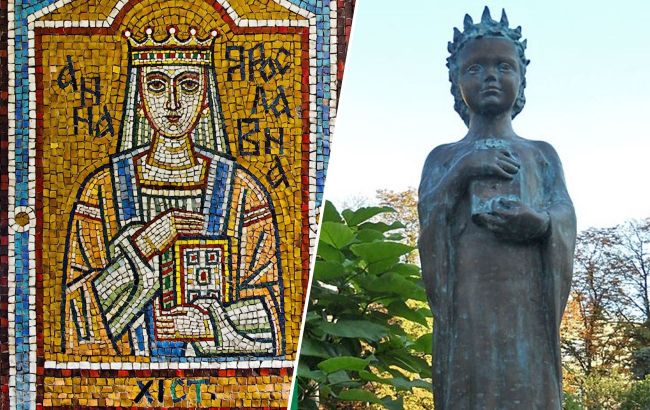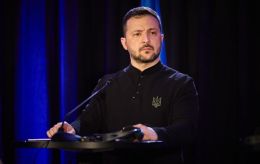France celebrates her, Ukraine barely knew her: Story of Anna Yaroslavna
 Who was Anna Yaroslavna and why is her story forgotten in Ukraine (Collage: RBC-Ukraine)
Who was Anna Yaroslavna and why is her story forgotten in Ukraine (Collage: RBC-Ukraine)
Anna Yaroslavna, daughter of Yaroslav the Wise and queen of France, remained a heroine in European history for centuries, while in Ukraine her name was barely mentioned. Few know why the legend of France was forgotten in her homeland and why it's important to restore her role in national memory today.
Who was Anna Yaroslavna?
Anna Yaroslavna, also known as Anna of Kyiv, was born around 1024 and was the daughter of Yaroslav the Wise, one of the most powerful rulers of Kyivan Rus.
In 1051, she married King Henry I of France and became Queen of France.
Educated, multilingual, deeply devout, and intelligent, she not only adapted to a foreign culture but also left a significant mark on European history.
King's wife and a political figure
In France, Anna's name appears in chronicles, church documents, and royal records.
She wasn't merely the monarch's wife; she took an active role in state affairs, signed documents in Cyrillic, raised her son (the future King Philip I), and retained influence in politics even after her husband's death.
Her image remains one of a wise and dignified queen. In the town of Senlis, where she spent part of her life, she is still honored today with a monument, commemorative events, and a street named after her.
Why Ukraine didn't know its queen
Meanwhile, in Ukraine, the name of Anna Yaroslavna was long forgotten. The historical disconnect between Kyivan Rus and its successors, along with centuries of dominance by Polish, Russian, and later Soviet historiography, led to a loss of attention to her figure.
Her story didn't fit into the imperial narrative as a Kyiv princess who integrated into European society. She challenged the myth of the "Russian world." And during the Soviet era, her image was particularly inconvenient, as it too clearly reflected the Christian and, more importantly, European roots of Kyiv.
This began to change only in the 2000s, when Ukrainian historians, diplomats, and the diaspora began to restore Anna's place in national memory. In 2005, French President Jacques Chirac publicly acknowledged her as the "French queen from Kyiv," sparking resonance in both countries. In 2018, a Ukrainian-French commemoration of her memory took place in Senlis, with the participation of representatives from both countries. Books, documentaries, exhibitions, and artistic projects began to emerge.
Today, Anna Yaroslavna is gradually becoming a symbol of Ukraine's historical dignity and proof of its deep European integration as early as the 11th century.
Yaroslav the Wise: Father-in-law of Europe
Anna's father, Yaroslav the Wise, was equally impressive. He is often called the "father-in-law of Europe" for marrying his daughters into the most powerful royal dynasties of the time.
Besides Anna in France, his other daughters became queens of Norway, Hungary, and Poland. This diplomatic matchmaking made Kyiv a center of political gravity in medieval Europe.
Thanks to these dynastic ties, Kyivan Rus stood alongside European monarchies not as a fringe territory or province.
Earlier, we wrote about the villages where Ukrainian history was written and what they look like today.
Sources: Wikipedia, BBC Ukraine.

